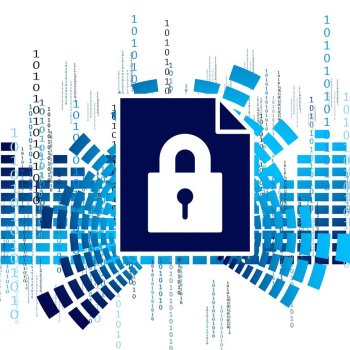
Cyber threats: This year, Kaspersky experts predict that cybercriminals will use media to blackmail large companies and government institutions and report on alleged data leaks.
In addition, initial access to companies that have already been compromised is increasingly being acquired on the Darknet. They also anticipate an increase in the malware-as-a-service model and attacks via the cloud. That's a lot of upcoming threats.
More cyber threats as early as 2022
In the past year, around two thirds (59,3 percent) of large companies in Germany were confronted with more cyber attacks. The attacks put data, financial assets and a company's reputation at risk. As part of Kaspersky Security Bulletin, experts from Kaspersky Security Services have examined the threats that will be relevant to large companies and the government sector this year. The experts predict the following threats:
1. Blackmail countdown to data leak
Ransomware actors are increasingly reporting successful hacker attacks on companies in their blogs. In September and November last year alone Kaspersky Digital Footprint Intelligence around 400 or 500 contributions. While cybercriminals used to contact victims directly, instead of privately demanding a ransom, they now post about the security breach on blogs and display a countdown until the leaked data is made public. This trend is expected to continue this year, benefiting cybercriminals whether the affected company pays or not. The data is often auctioned, with the closing bid sometimes even exceeding the ransom demanded.
2. Cyber criminals boast of fake leaks
Blog posts about extortion are attracting media attention, which some lesser-known actors are likely to take advantage of in 2023. They will claim to have allegedly hacked a company, regardless of whether the hack actually happened. It will still damage the company mentioned.
3. Leaks of personal data jeopardize professional mail accounts
The Kaspersky experts continue to assume that there will be more leaks of personal data this year. In addition to the direct impact on the privacy of individuals, this also jeopardizes the cyber security of companies. Because employees often use work email addresses to register with third-party websites. Publicly available email addresses are of interest to cybercriminals; they can use it to spark discussions about potential attacks on the dark web and use them for phishing and social engineering.
4. Malware-as-a-Service, attacks via the cloud and compromised data from the dark web
The experts assume that ransomware attacks using Malware-as-a-Service (MaaS) tools will become more and more similar. Due to increasingly complex attacks, automated systems are no longer sufficient to ensure comprehensive security. In addition, cloud technology will become a popular attack vector, since digitization generally means a larger attack surface.
"The threat landscape is evolving rapidly, and organizations are being forced to adapt quickly," said Anna Pavlovskaya, security services analyst at Kaspersky. “To protect a large enterprise or government agency from today's threats, an organization's digital footprint must be considered. It is important to be prepared to investigate and respond to incidents as it is not always possible to stop attackers before they penetrate an organization's perimeter. At the same time, however, preventing the development of an attack and containing the potential is a perfectly doable challenge.”
Subscribe to our newsletter now
Read the best news from B2B CYBER SECURITY once a monthRecommendations for protection against cyber threats
- The software of all devices should always be up to date to prevent attackers from exploiting security gaps and infiltrating the network. Install available patches immediately.
- Threat intelligence should be part of the cybersecurity strategy so that the security team is informed about the current tactics and methods used by cybercriminals.
- Using Digital Footprint Intelligence, security analysts can explore their own corporate assets from the attacker's perspective in order to identify and eliminate potential threats.
- In the event of a cyber security incident, Incident Response Services help to respond and minimize the consequences. In particular, compromised nodes are identified and the infrastructure protected against similar future attacks.
About Kaspersky Kaspersky is an international cybersecurity company founded in 1997. Kaspersky's in-depth threat intelligence and security expertise serve as the basis for innovative security solutions and services to protect companies, critical infrastructures, governments and private users worldwide. The company's comprehensive security portfolio includes leading endpoint protection as well as a range of specialized security solutions and services to defend against complex and evolving cyber threats. Kaspersky technologies protect over 400 million users and 250.000 corporate customers. More information about Kaspersky can be found at www.kaspersky.com/
